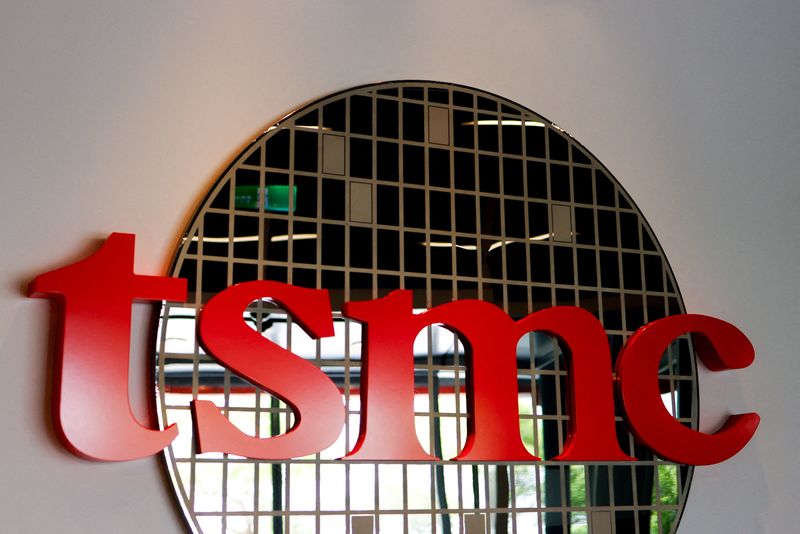
By Wen Yi Li
TAIPEI (Reuters) – TSMC's new U.S. factory is unlikely to have access to more advanced chip technology before factories in Taiwan due to complex compliance issues, local building regulations and different permit requirements, its CEO said.
Taiwan Semiconductor Manufacturing Company CEO and Chairman CC Wei said building the new factory in Arizona took at least twice as long as it did in Taiwan, in comments detailing specific challenges for the United States as it seeks to rebuild its domestic chip manufacturing sector.
“Every step requires a permit, and after the permit is approved, it takes at least twice as long as in Taiwan,” Wei said late Thursday during an event at National Taiwan University. He added that it would be difficult for TSMC to use its latest technology in the United States before Taiwan.
TSMC, the dominant manufacturer of advanced chips used by companies including Apple (NASDAQ:) and Nvidia (NASDAQ:), is spending $65 billion on three giant factories in the US state of Arizona.
TSMC said most of its chip manufacturing will remain in Taiwan, especially for more advanced chips.
Wei said on an earnings call Thursday that despite various challenges and cost overruns, he is confident the Arizona plant will produce the same quality of chips as in Taiwan, and expects a smooth ramp-up process.
At the university event, Wei said a shortage of skilled workers and gaps in the supply chain, as well as a lack of regulations on building a chip factory, led to the Arizona project's timeline being extended.
“We ended up creating 18,000 rules, which cost us $35 million,” Wei said, noting that TSMC funded the hiring of a team of experts to work with local government on regulatory issues.
He added that chemical supply costs in the United States were five times those in Taiwan, prompting TSMC to ship sulfuric acid from Taiwan to Los Angeles and then truck it to Arizona.
Labor shortages also posed challenges, he said, as TSMC brought half its construction workers from Texas to Arizona, which increased costs due to transportation and lodging.

The US government has offered full support for the investment, including a $6.6 billion grant, as it seeks to spread the geographical risks resulting from the over-concentration of chip manufacturing in Asia, especially Taiwan.
TSMC has begun producing advanced 4-nanometer chips for American customers in Arizona, US Commerce Secretary Gina Raimondo said last week, marking a milestone in the Biden administration's semiconductor efforts.







